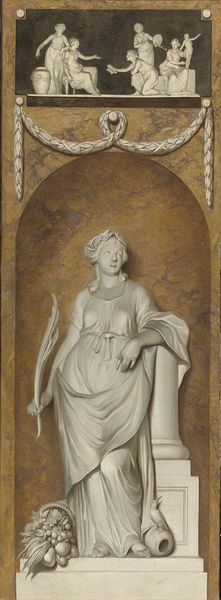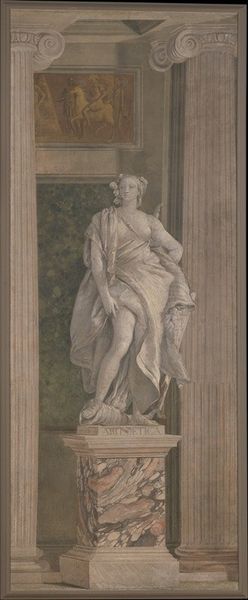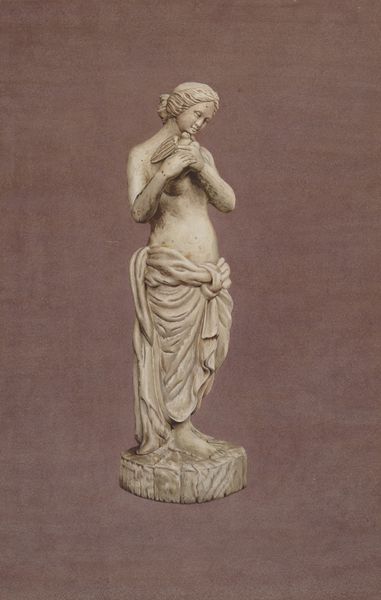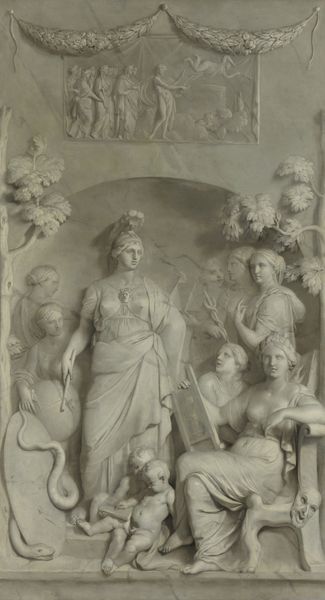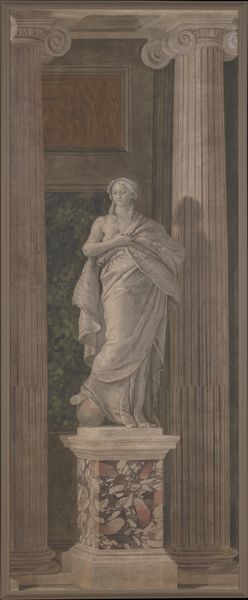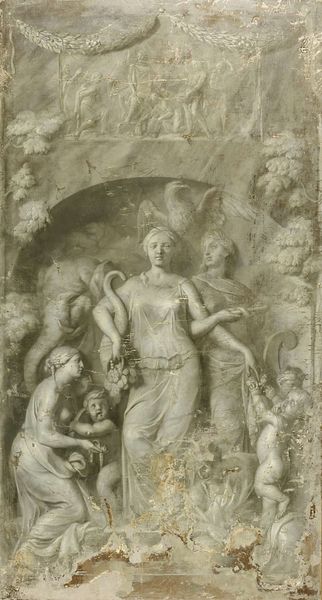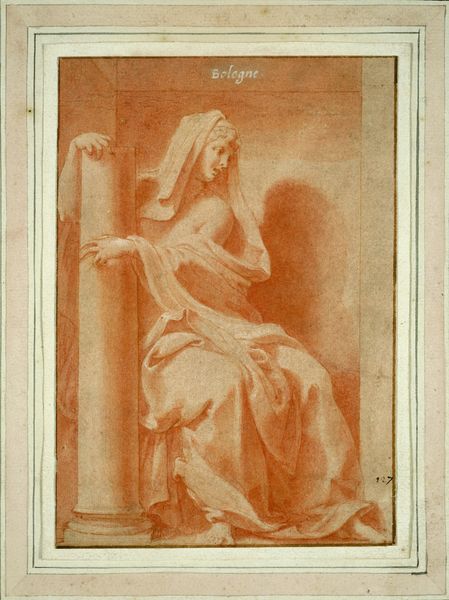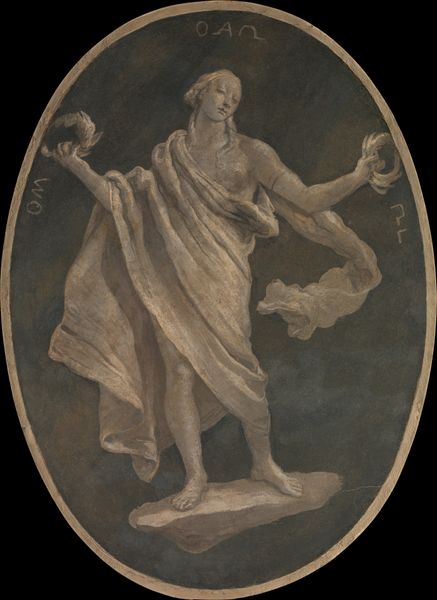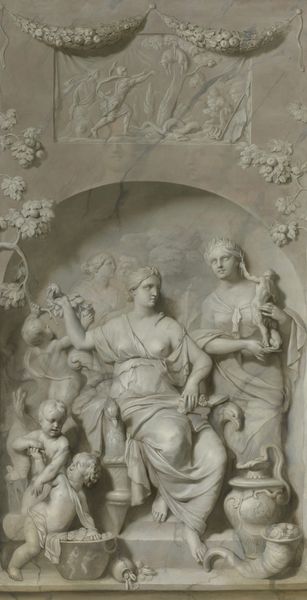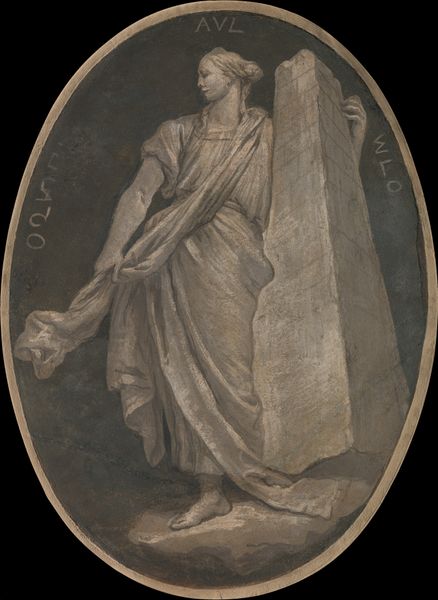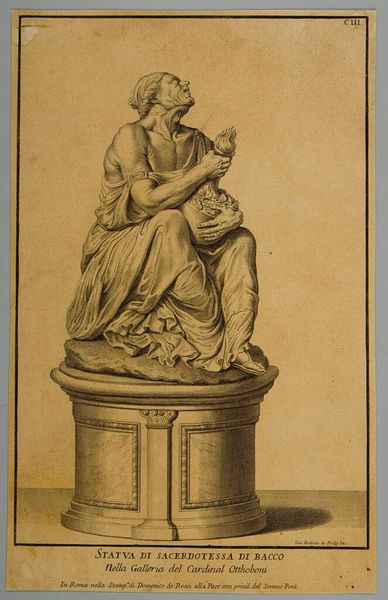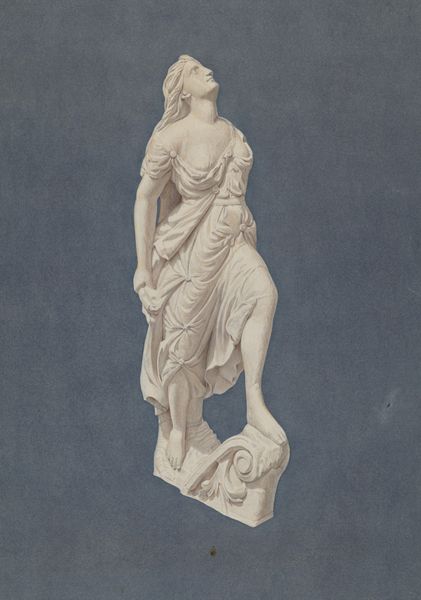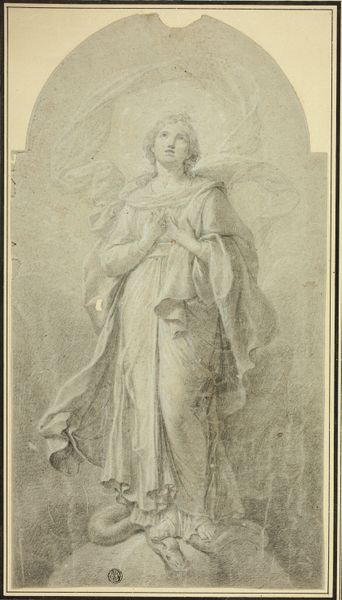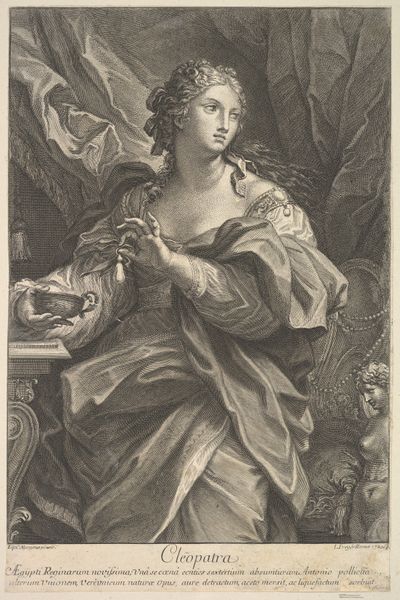
drawing, pencil, pen, charcoal
#
drawing
#
neoclacissism
#
landscape
#
classical-realism
#
charcoal drawing
#
figuration
#
oil painting
#
pencil
#
pen
#
charcoal
#
history-painting
#
watercolor
Dimensions: height 277 cm, width 102 cm, height 235.6 cm, width 110.6 cm, depth 9 cm
Copyright: Rijks Museum: Open Domain
Jurriaan Andriessen created this painted wall hanging with a bacchante, or female follower of Bacchus, the Roman god of wine, sometime in the 18th century. The subject matter and its illusionistic treatment as a marble sculpture are typical of the period. Painted for a Dutch canal house, this work reflects the fashion for classical motifs in interior decoration at the time. The dancing figures above the main scene and the bacchante herself refer to the pleasures of wine and revelry. But they also speak to the values of the Dutch elite, who associated themselves with the refinement and learning of classical antiquity. To fully understand this artwork, we need to consider its institutional context. Who was commissioning these kinds of works and why? What was the social role of art in the Netherlands at this time? By consulting period documents, such as estate inventories, we can learn more about how art functioned in the lives of those who created and consumed it.
Comments
No comments
Be the first to comment and join the conversation on the ultimate creative platform.
